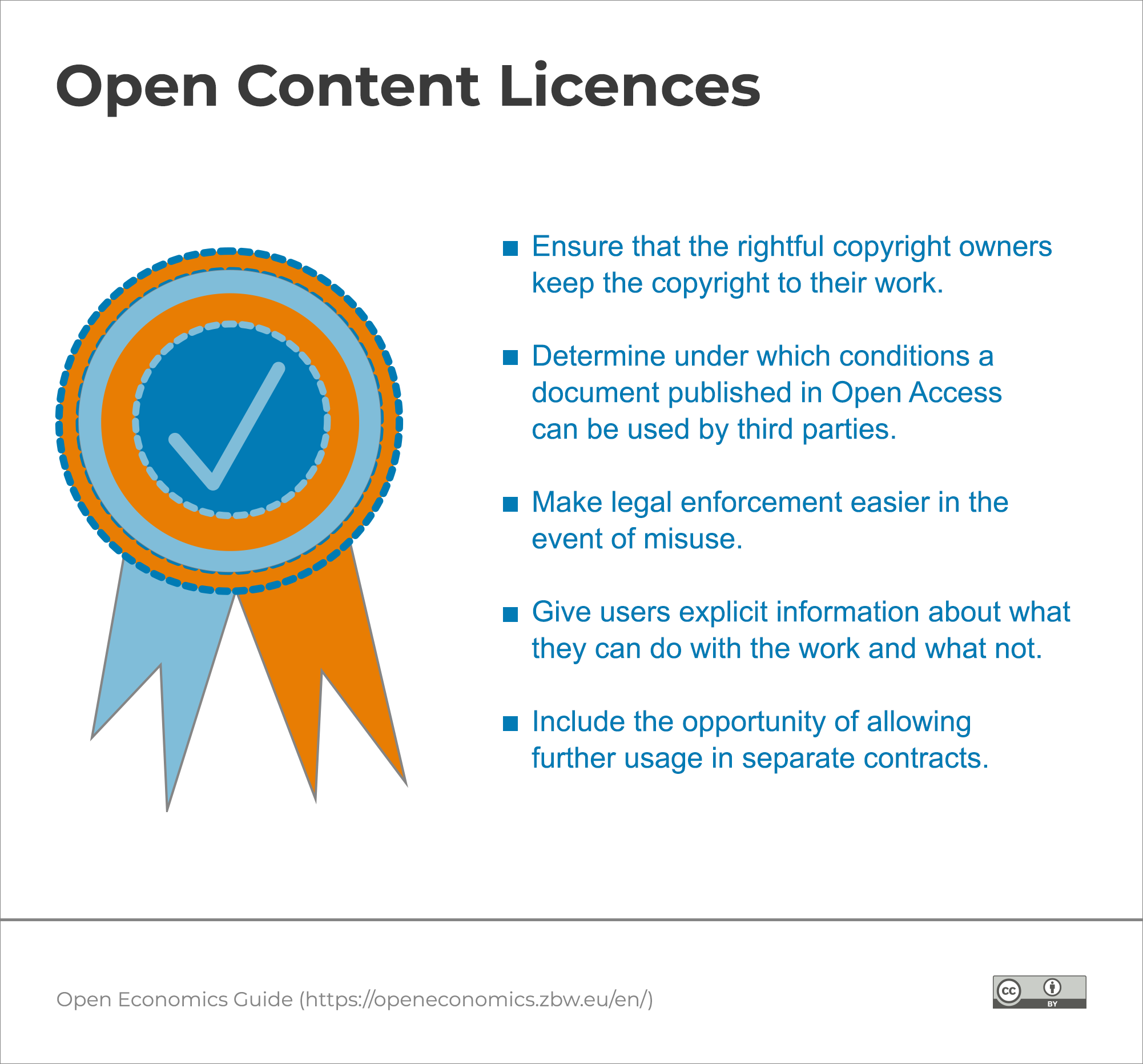Using Open Content Licences
You should place your works under an open content licence, such as a Creative Commons licence, if you publish them in Open Access to make them widely reusable. Other open content licences are the Digital Peer Publishing licence (DPPL) or the Free Documentation Licence of the GNU Initiative (GNU-FDL). They ensure that the rightful copyright owners keep the copyright to their work. You can determine under which conditions a document published in Open Access can be used by third parties using open content licences. The granting of specific usage rights on the basis of these kinds of licence makes legal enforcement easier in the event of misuse and gives the users explicit information about what they can do with the work and what not. At the same time, you retain the opportunity of allowing further usage beyond the scope of the licence in separate contracts.
For practical implementation, you should consider the following points:
- You can only place your work under an Open Content licence if you have not granted exclusive rights of use to anyone else. So, if you have already published your work with a publisher, for example, you would need to check whether this is possible.
- You should also check in advance whether your institution or research funding organisation has specific requirements for the type of licence. This is especially important to consider for collaborative projects.
- For licensing, proceed as follows: Provide an appropriate reference to the selected licence and a link to the licence text when publishing. If an appropriately licensed Open Access publication is reused, at least the source must be cited with a link and the specified licence, as well as any modifications.

There are various tools and overviews that support you in selecting a suitable Creative Commons licence:
- Creative Commons License Chooser by Creative Commons
- Open Content – A Practical Guide to Using Creative Commons Licences by Wikimedia
- Guide to Creative Commons for Scholarly Publications and Educational Resources, created by academic libraries from the Netherlands
You can find more information about legal issues in connection to Open Access – for Germany, Austria and Switzerland respectively – on the website of open-access.net.